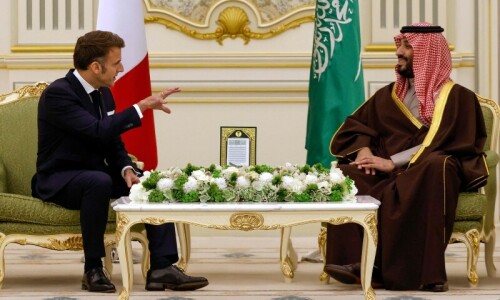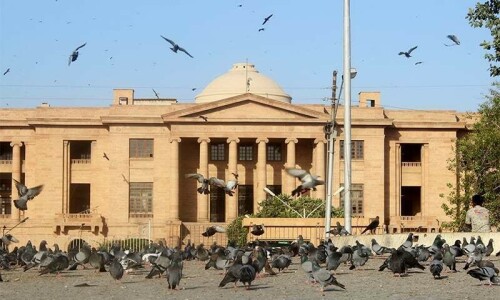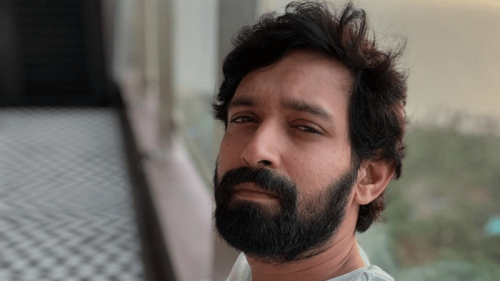THE proposed 22nd Amendment Act, 2015, has been tabled by a few tribal MNAs to merge Fata with Pata. This is a significant moment in our history. It would have been unthinkable just a few years ago to even whisper such an idea. What brought about such radical transformation of the tribal mind? A long period of devastating war that was never experienced by them previously? War uproots and shakes societies and brings order in the end. That order is a small consolation prize after the cruelties and miseries perpetrated during the war. Maybe, there is a hidden motive of the MNAs?
Most people do not know much about Fata and still less about Pata. Fata is often in news because of the ongoing militancy and the controversy surrounding the Frontier Crimes Regulation. The rest nobody wants to know or cares much about. Let’s talk about Pata to understand the proposed constitutional amendment.
The constituent parts of Pata include all the six districts of Malakand division (Swat, Shangla, Upper Dir, Lower Dir, Malakand and Chitral), Indus Kohistan of Kohistan district, Allai of Battagram district and Tor Ghar district including the former state of Amb. Pata falls under the administrative control of the chief minister of Khyber Pakhtunkhwa. Article 246(b)(I) and Article 247(1)(2)(3)(4) of the Constitution deals with Pata.
The legal system in Pata is different in name only from the rest of the province. In most cases, the procedure provided by the Criminal Procedure Code and the Civil Procedure Code is followed by the courts and punishment is provided by the substantive law i.e. Pakistan Penal Court. The Nizam-i-Adl Regulation, 2009, was promulgated in Pata except for the tribal areas adjoining Mansehra district and the former state of Amb. In some cases, guidance is sought from the Holy Quran and the Sunnah of the Prophet (PBUH). The Qanun-i-Shahadat Order, 1984, is applicable in Pata regarding the admissibility of evidence or otherwise.
Most of us know little about Fata and still less about Pata.
The judicial officers working in the rest of the province are posted to Pata with changed nomenclature as zila qazi for the sessions judge, izafi zila qazi for the additional sessions judge, illaqa qazi for the senior civil judge, illaqa qazi fewani for civil judge and illaqa qazi faujdari for magistrate.
The jirga system existed in Pata for resolving civil and criminal disputes under two special laws the Provincially Administered Tribal Areas Criminal Laws Regulations (I and II of 1975) and Civil Law Regulations. However, the same were challenged in the Peshawar High Court. The said laws were struck down by the court. The provincial government, being aggrieved, challenged the order in the Supreme Court. The appeal did not succeed.
The Police Act is applicable to all the districts of Pata except the district of Malakand (previously Malakand Agency) where policing is done by levies. Levies operated in Malakand and Dir districts under the Frontier Irregular Corp (FIC) Rules, 1962. These rules were replaced by Federal Levies Regulation/Rules of 2012-2013 which currently apply. Levies fall under the command of the deputy commissioners concerned. Their highest ranking district officer is a subedar major in BPS-16 which compares poorly with a DSP in a district who is in BPS-17. Levies are funded by the Ministry of States and Frontier Regions in the federal government.
The question is, have the authors of the bill explained the above system to their respective constituencies? As far as I know that is not the case. The tribal MNAs may have been elected by popular vote but on a fundamental issue like this they should have come with broad-based consensus of the people in all agencies and Frontier Regions. At the moment, that consensus is not in evidence. Bringing a radical change from a hard core, classical tribal system to a tribal system in name will be difficult to sell.
Human actions are driven by motives. This is much more pronounced in tribal dealings and tribal politics. Cynicism is a hallmark of civil servants. A product of that tradition and having considerable experience of tribal dealings, my thought turns to the real motive of the authors of the bill. When a tribal elder falls out with a political agent, he does not straight head for his rifle. He does two things. He stops visiting the officer and gets into intrigue mode and starts fanning issues which hurt the officer. Tribal MNAs normally hover around the top hat in Peshawar which does not seem to be the case now. Being ignored they preferred to convey the message that they would rather be comfortable with the chief minister of the province. If the cynic in me is right then it is a stinging criticism of the style of governance of the incumbent.
Motives aside, it is still a sea change in thinking. A possibility which was taboo till recently has suddenly become open for discussion.
The writer is a former federal secretary.
Published in Dawn, October 29th, 2015
On a mobile phone? Get the Dawn Mobile App: Apple Store | Google Play











































